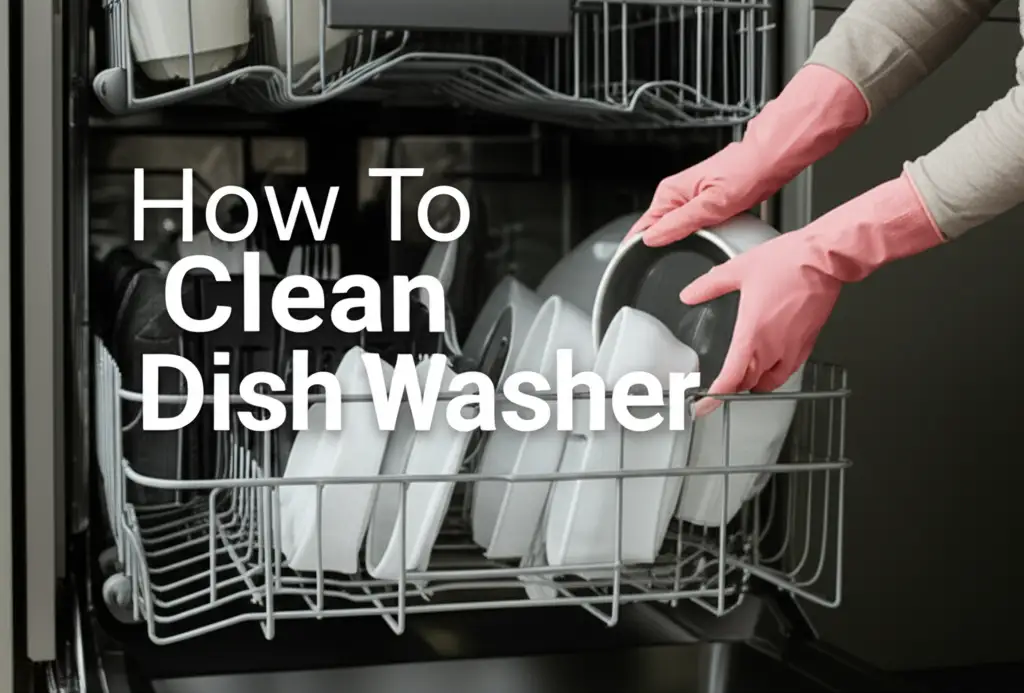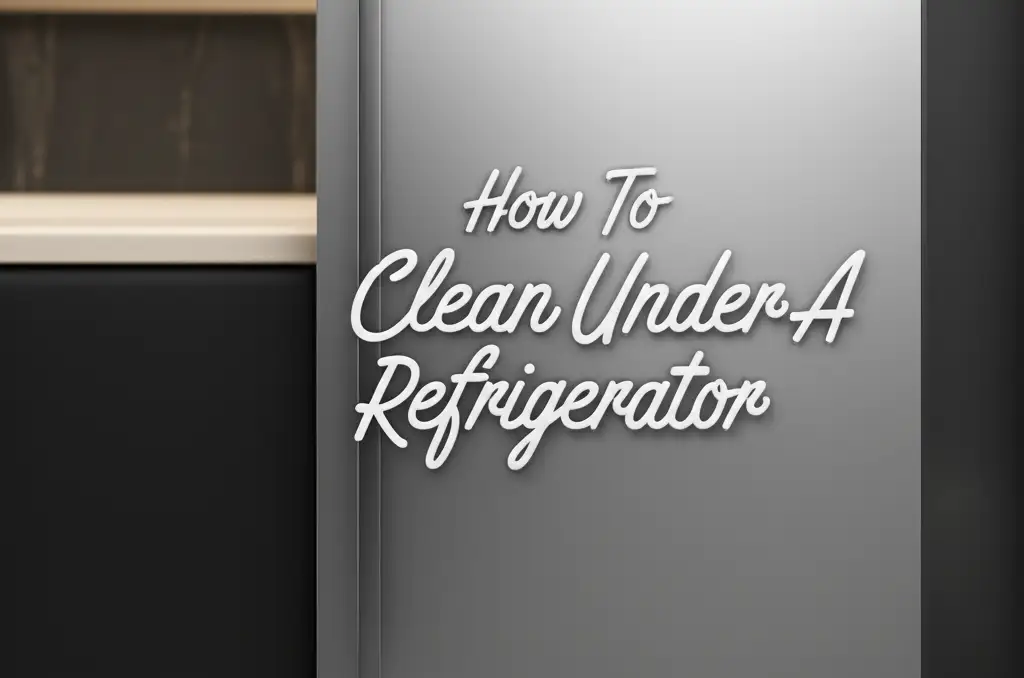· Home Cleaning · 13 min read
How To Clean Dish Washer

How To Clean Dish Washer: Get Sparkling Results
Is your dishwasher leaving dishes less than perfectly clean? Perhaps a strange smell comes from the appliance when you open its door. These are common signs that your dishwasher needs a good cleaning. Learning how to clean a dish washer properly improves its performance. It also helps your dishes come out sparkling every time. I want to share my best tips for keeping this important kitchen helper in top shape.
A clean dishwasher works better. It also lasts longer. This guide gives you simple steps to tackle dirt, grime, and odors. We will go over why cleaning matters. We will discuss what tools you need. Then, we will walk through a deep cleaning process. You will learn about routine care and troubleshooting common issues. Get ready to make your dishwasher shine and work like new again.
Takeaway
- Regularly clean your dishwasher to prevent odors and improve performance.
- Focus on cleaning the filter, spray arms, and gasket.
- Use natural cleaners like vinegar and baking soda for deep cleaning.
- Perform quick routine maintenance after each use.
Concise Answer
To clean a dishwasher, first remove all items and visible food particles. Then, deep clean the filter, spray arms, and door gasket. Run an empty hot cycle with a cup of white vinegar, followed by a cycle with baking soda, to sanitize and deodorize the interior.
Why Your Dishwasher Needs Regular Cleaning
Your dishwasher works hard. It washes away food grime from your plates and silverware. Over time, some of that grime stays behind. Food particles, grease, and hard water minerals build up inside the machine. This buildup leads to several problems. It can make your dishwasher less effective.
One clear sign is when your dishes do not look clean anymore. You might see white spots or a film on glassware. This often comes from mineral deposits. Another big problem is bad smells. Trapped food bits and mold can create a foul odor. This smell can transfer to your clean dishes. No one wants smelly plates.
Regular cleaning helps your dishwasher perform its best. It removes the gunk that blocks spray arms. It clears out the filter, which traps food. A clean machine uses less energy. It also extends the life of your appliance. Keeping it clean prevents costly repairs. It also ensures your kitchen stays fresh. Ignoring cleaning can even lead to drain issues or mold growth. Keeping up with cleaning prevents these bigger problems. Learn how to get rid of common appliance smells for good by checking out our guide on how to clean washer smell.
Essential Tools and Supplies for Cleaning Your Dishwasher
Before you start cleaning your dishwasher, gather the right supplies. You do not need many items. Most are common household products. These tools make the job easier and more effective. Having everything ready saves time. It ensures you can complete the task without interruption.
First, you will need a soft cloth or sponge. These are good for wiping surfaces. A small brush is also helpful. A toothbrush or a bottle brush works well for small, hard-to-reach areas. You will also want dish soap. This is for cleaning specific parts. I always keep a pair of rubber gloves handy. They protect my hands from grime and cleaning agents.
For cleaning solutions, white vinegar is a must-have. It acts as a powerful degreaser and deodorizer. Vinegar also helps break down mineral deposits. Baking soda is another great natural cleaner. It absorbs odors and provides a gentle abrasive action. Sometimes, I use a commercial dishwasher cleaner for extra sanitization. This is good for a deeper clean every few months. Make sure to read the product instructions carefully if you choose a commercial cleaner. Using vinegar is a great way to clean many parts of your home, and you can learn more about its uses in our guide on how to clean washer with vinegar.
Step-by-Step Deep Cleaning Your Dishwasher
A deep clean for your dishwasher makes a big difference. It removes hidden grime and lingering smells. I usually do this type of cleaning every one to three months. The process involves several key steps. Each step targets a different part of the appliance. Following these steps helps your dishwasher work like new.
Emptying and Initial Wipe-Down
Start by emptying your dishwasher completely. Remove all dishes, racks, and silverware baskets. Check for any large food pieces inside. Sometimes, pasta, rice, or small bones get left behind. Throw these away. Then, take a damp cloth. Wipe down the entire interior. Pay attention to the door and the edges. Food splatters often dry onto these surfaces. A quick wipe removes loose dirt. This prepares the machine for deeper cleaning. Do not forget to wipe the soap dispenser area. Old detergent can build up there.
Tackling the Dishwasher Filter
The dishwasher filter collects food particles. It prevents them from recirculating onto your dishes. This filter can get very dirty. Most dishwashers have a removable filter. Check your dishwasher manual to find its location. It is usually at the bottom, under the lower spray arm. Carefully twist or lift the filter out. You might find a lot of trapped food. Rinse the filter under running water. Use a small brush or old toothbrush to scrub away stubborn grime. Dish soap can help clean oily residues. Once clean, replace the filter firmly. A clean filter is vital for clean dishes.
Cleaning Spray Arms and Racks
The spray arms have small holes. Water sprays out of these holes to clean your dishes. These holes can get clogged with food bits or mineral deposits. Carefully remove the spray arms. They usually twist off or unclip. Use a toothpick or small wire to clear any clogged holes. Rinse the spray arms under warm water. Check them closely for any remaining blockages. If they look very dirty, soak them in white vinegar for a few minutes. This helps dissolve mineral buildup.
While the spray arms soak, clean the racks. Food residue can stick to them. Wipe down the racks with a damp cloth. You can also use a sponge with dish soap. Pay attention to the wheels on the racks. Hair and debris can get tangled there. Ensure all parts are free from gunk. Then, put the clean spray arms and racks back into place.
Cleaning the Dishwasher Door Gasket
The door gasket is the rubber seal around the dishwasher door. This seal keeps water inside the machine during a cycle. Food, mold, and mildew often collect on this gasket. Pull back the folds of the gasket. You might see dark, slimy buildup. Use a damp cloth and a little dish soap. Wipe down all parts of the gasket. Pay close attention to crevices. A toothbrush can help scrub away stubborn spots. This step is important for preventing leaks. It also stops bad smells. Keeping the gasket clean helps maintain a tight seal. This ensures your dishwasher runs efficiently. This method is similar to how you would clean the seal on a laundry machine, as discussed in our guide on how to clean front load washer gasket.
Deodorizing Your Dishwasher Naturally
After cleaning the physical parts, it is time to deodorize. This step removes any remaining odors. It also sanitizes the machine. Place a cup of white vinegar in an upright, top-rack-safe bowl. Do not add any detergent. Run an empty hot water cycle. The hot water and vinegar will work together. They loosen remaining grime. They also kill mold and mildew. Vinegar also neutralizes smells.
Once that cycle finishes, remove the bowl. Sprinkle about one cup of baking soda on the bottom of the dishwasher. Close the door. Let it sit overnight if possible. Baking soda absorbs odors. In the morning, run another short, hot water cycle. Again, do not add detergent. This final rinse washes away the baking soda. It leaves your dishwasher smelling fresh. This two-step process using vinegar and baking soda is highly effective. It leaves your machine sparkling clean and odor-free.
Routine Maintenance for a Fresh Dishwasher
Deep cleaning your dishwasher is important. However, daily and weekly habits also matter. Routine maintenance keeps your machine working well between deep cleans. It prevents major buildup. This makes deep cleaning easier when it is time. I follow a few simple steps after each wash. These steps take little effort. They save a lot of trouble in the long run.
First, always scrape excess food off plates before loading. You do not need to pre-rinse, but remove large chunks. This prevents food from clogging the filter. After each cycle, leave the dishwasher door ajar for a while. This allows moisture to escape. It helps the interior dry completely. A dry environment discourages mold and mildew growth. This simple trick can prevent many bad smells.
Once a week, take a damp cloth. Wipe down the door edges and the gasket. Food particles and grime often collect there. A quick wipe removes them before they harden. Also, check the filter weekly. If you see visible food, take it out and rinse it. This keeps water flowing freely. It ensures your dishes get clean. Doing these small tasks regularly maintains freshness. It also extends the life of your dishwasher. Consistency is key for a well-maintained appliance.
Troubleshooting Common Dishwasher Issues (and How Cleaning Helps)
Even with regular cleaning, you might encounter some dishwasher issues. Many problems relate directly to a dirty machine. Knowing how cleaning helps can save you a service call. Let me explain some common issues and their solutions. My experience shows that a clean appliance often fixes many of these.
One frequent complaint is spotty or cloudy dishes. This usually indicates hard water mineral buildup. These minerals stick to your dishes and the dishwasher’s interior. A thorough cleaning with vinegar helps. The acid in vinegar dissolves these mineral deposits. Use a rinse aid in every cycle for ongoing prevention. This helps water sheet off dishes.
Another common problem is a lingering bad smell. We already discussed this. It often comes from trapped food particles or mold. Regular filter cleaning and monthly vinegar/baking soda treatments are the best defense. If the smell persists, check under the lower spray arm for hidden debris. Sometimes, food can get lodged in the drain area. Remember, a truly clean machine should not smell.
If your dishwasher is not draining properly, a clogged filter is a likely culprit. Check and clean the filter first. This is the easiest fix. Spray arm holes can also get clogged. This leads to poor water circulation. Dishes on one side might be clean, but others remain dirty. Clearing these holes ensures even water distribution. Sometimes, cleaning the air gap on your sink can also help draining issues if your system has one. A clean dishwasher simply performs better. It washes dishes more effectively. It also runs more efficiently.
Choosing the Right Dishwasher Cleaner: Natural vs. Commercial Solutions
When it comes to cleaning your dishwasher, you have choices. You can use natural household products. You can also buy commercial dishwasher cleaners. Both options work well. The best choice depends on your preference. It also depends on how dirty your machine is. I find a mix of both methods works best for my home.
Natural solutions are great for regular maintenance. White vinegar is my top pick. Its acidic nature cuts through grease and hard water stains. It also neutralizes odors. I use about one cup of white vinegar in an empty cycle once a month. Baking soda is another natural powerhouse. It absorbs smells. It provides a gentle abrasive for scrubbing. I often sprinkle it on the bottom of the dishwasher overnight. These natural cleaners are safe for your family. They are also gentle on your appliance. They do not add harsh chemicals to your wastewater.
Commercial dishwasher cleaners offer convenience. They often come in tablet or liquid form. They contain strong degreasers, sanitizers, and descaling agents. Brands like Affresh or Finish make popular dishwasher cleaning tablets. I use these every three to six months for a deeper sanitization. They are especially good if you have a very dirty machine. Always follow the instructions on the product label. Make sure the cleaner is safe for your dishwasher model. Commercial cleaners can be more aggressive. They might be better for heavy mineral buildup or persistent odors. Combining natural remedies with occasional commercial treatments gives you the best of both worlds.
FAQ Section
How often should I clean my dishwasher?
You should deep clean your dishwasher every one to three months. This helps prevent major buildup of food particles, grease, and mineral deposits. For daily maintenance, wipe down the door and clear any visible food from the bottom after each use. Check the filter weekly for trapped debris and rinse it as needed.
Can I use bleach in my dishwasher?
No, you should not use bleach in your dishwasher. Bleach can damage stainless steel parts inside the machine. It can also react with dishwasher detergent, creating dangerous fumes. Always stick to white vinegar, baking soda, or cleaners specifically designed for dishwashers. These options are safer and just as effective for cleaning and deodorizing.
Why does my dishwasher still smell after cleaning?
If your dishwasher still smells after cleaning, check for hidden food debris. Look under the filter assembly or around the drain. Small food particles can get trapped in crevices or the spray arms. Ensure the gasket around the door is thoroughly cleaned. Running another cycle with white vinegar, followed by baking soda, often eliminates stubborn odors.
What causes white residue on dishes?
White residue on dishes usually comes from hard water minerals. These minerals stick to dishes during the drying cycle. A dirty dishwasher can also contribute to this problem. Regularly cleaning your dishwasher with vinegar helps dissolve mineral buildup inside the machine. Using a rinse aid with each wash cycle also helps prevent spots on your dishes.
Do I need to pre-rinse dishes?
No, you generally do not need to pre-rinse dishes. Most modern dishwashers are designed to handle food particles. Scraping large food chunks off plates is enough. Pre-rinsing can actually make your detergent less effective. This is because enzymes in the detergent need food to “eat.” Over-rinsing also wastes water and energy.
Conclusion
Cleaning your dishwasher is an essential task for any home. It goes beyond just keeping your appliance looking good. A clean dishwasher ensures your dishes are truly spotless. It also prevents unpleasant odors from taking over your kitchen. We have covered why this routine is important. We have also walked through all the steps. From gathering supplies to tackling the filter, spray arms, and even the gasket, you now have a full plan.
Remember, a little regular maintenance goes a long way. Wiping down the door and checking the filter regularly keeps major problems at bay. Incorporating monthly deep cleans with natural solutions like vinegar and baking soda will keep your machine running efficiently. If you find your dishes are still not clean, or bad smells linger, go back through the steps. You can tackle most issues with a good clean. I encourage you to take these steps today. Your sparkling clean dishes and fresh-smelling kitchen will thank you. Make cleaning your dishwasher a regular part of your home care routine.
- dishwasher cleaning
- appliance care
- kitchen hygiene
- deep cleaning
- odor removal




